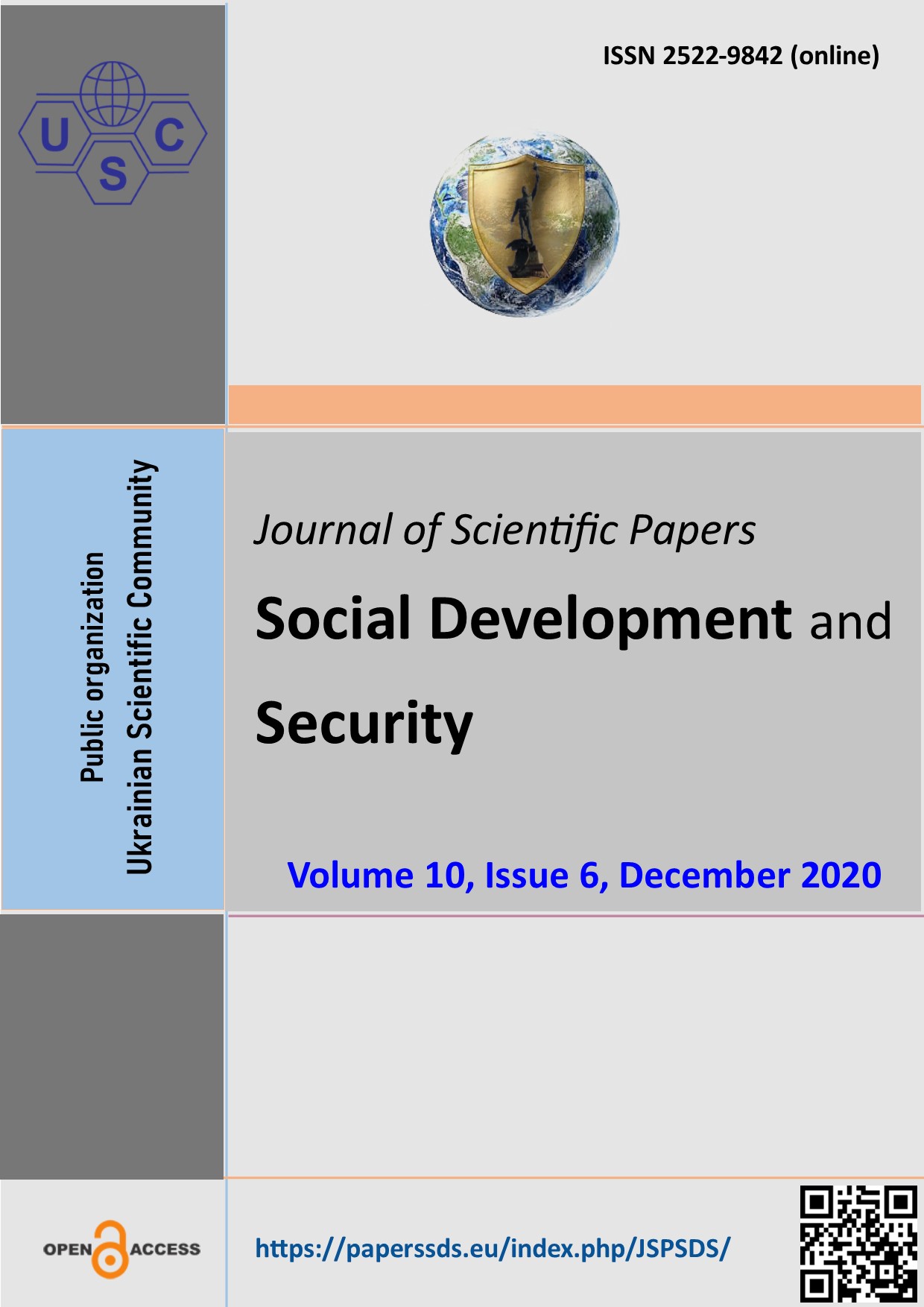The impact of the level of development of education and law on the economic potential of the country
Abstract
The article is of interest to experts in the economic field who study the problems of economic potential of the country. The purpose of the article is to study the patterns in the development of economic potential of the country and its dependence on the degree of development of education, science and law in the state. The set scientific task was solved by comparing the economic development of some countries and the development of their education and law.
In the process of achieving the goal of the study, the following methods of scientific knowledge were used: historical analogy, analysis, synthesis, induction, deduction, system approach.
The analysis of sources shows that the impact of education and the right to economic development of countries is given great attention to world-renowned economists since the beginning of the XVII century. and ending in the present tense. This scientific work shows that the development of education and its widespread dissemination is a prerequisite for the development of science and liberalization of law, and in the aggregate and a prerequisite for economic development. On the example of such developed world countries as the USA, Great Britain, France, Germany, etc. identified certain factors that contributed to the development of methods of knowledge transfer and development in these countries. An analysis of the ranking of world universities, the world index of justice and economic well-being of some countries.
Downloads
References
A History of the University in Europe. Available from: https://books.google.ru/books?id=ZHMjzvAxHF0C&pg=PA81#v=onepage&q&f=false (data zvernennya 22.08.2020).
University SSHA. Available from: https://usa-info.com.ua/universitety/study/university (data zvernennya 22.08.2020).
QS World University Rankings. Available from: https://www.educationindex.ru/articles/university-rankings/qs/ (data zvernennya 10.09.2020).
QS World University Rankings. Available from: https://www.topuniversities.com/university-rankings/world-university-rankings/2020 (data zvernennya 10.09.2020).
Luhovyy V., Kalashnikova S., Slyusarenko O., Talanova ZH. Nobelivsʹki laureaty i top-zaklady vyshchoyi osvity, krayiny ta kontynenty z perdovym universytet·sʹkym potentsialom. Vyrshcha osvita Ukrayiny. Kyyiv. 2013. S 10-20.
Honkonh. Available from: https://uk. wikipedia.org/wiki/Гонконг (дата звернення 12.09.2020).
List of Nobel Laureates by Country. Available from: https://www.jagranjosh.com/general-knowledge/list-of-nobel-laureates-by-country-1495796462-1 (data zvernennya 16.09.2020).
How many Nobel Prizes has the UK won? Available from: https://fullfact.org/news/how-many-nobel-prizes-has-uk-won/ (data zvernennya 16.09.2020).
International Monetary Fund. Available from: https://www.imf.org/external/pubs/ft/weo/2019 (дата звернення 16.09.2020).
Military expenditure by country as percentage of gross domestic product, 1988-2019. SIPRI 2020. Available from: https://www.sipri.org/sites/default/files/Data%20for%20all%20countries%20from%201988%E2%80%932019%20as%20a%20share%20of%20GDP.pdf (data zvernennya 22.09.2020).
World Justice Project. Rule of Law Index 2019 Insights. Available from: https://worldjusticeproject.org/sites/default/files/documents/WJP-Insights-2019-Single%20Page%20View_0.pdf (data zvernennya 29.09.2020).
Tkach, M. (2020). Patterns of development of national power: historical experience of the world states. Political Science and Security Studies Journal, 1(1), 40-48. http://doi.org/10.5281/zenodo.4256820
Abstract views: 705 PDF Downloads: 358
Copyright (c) 2020 Mykola Tkach, Anatolii Loishyn, Serhii Kondratiuk

This work is licensed under a Creative Commons Attribution 4.0 International License.
The authors agree with the following conditions:
1. Authors retain copyright and grant the journal right of first publication (Download agreement) with the work simultaneously licensed under a Creative Commons Attribution License that allows others to share the work with an acknowledgment of the work's authorship and initial publication in this journal.
2. Authors have the right to complete individual additional agreements for the non-exclusive spreading of the journal’s published version of the work (for example, to post work in the electronic repository of the institution or to publish it as part of a monograph), with the reference to the first publication of the work in this journal.
3. Journal’s politics allows and encourages the placement on the Internet (for example, in the repositories of institutions, personal websites, SSRN, ResearchGate, MPRA, SSOAR, etc.) manuscript of the work by the authors, before and during the process of viewing it by this journal, because it can lead to a productive research discussion and positively affect the efficiency and dynamics of citing the published work (see The Effect of Open Access).
















